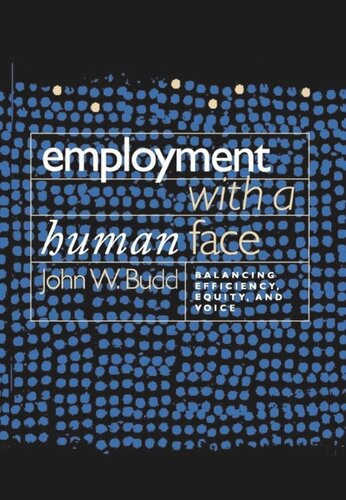

Most ebook files are in PDF format, so you can easily read them using various software such as Foxit Reader or directly on the Google Chrome browser.
Some ebook files are released by publishers in other formats such as .awz, .mobi, .epub, .fb2, etc. You may need to install specific software to read these formats on mobile/PC, such as Calibre.
Please read the tutorial at this link: https://ebookbell.com/faq
We offer FREE conversion to the popular formats you request; however, this may take some time. Therefore, right after payment, please email us, and we will try to provide the service as quickly as possible.
For some exceptional file formats or broken links (if any), please refrain from opening any disputes. Instead, email us first, and we will try to assist within a maximum of 6 hours.
EbookBell Team

5.0
90 reviewsJohn W. Budd contends that the turbulence of the current workplace and the importance of work for individuals and society make it vitally important that employment be given "a human face." Contradicting the traditional view of the employment relationship as a purely economic transaction, with business wanting efficiency and workers wanting income, Budd argues that equity and voice are equally important objectives. The traditional narrow focus on efficiency must be balanced with employees' entitlement to fair treatment (equity) and the opportunity to have meaningful input into decisions (voice), he says. Only through a greater respect for these human concerns can broadly shared prosperity, respect for human dignity, and equal appreciation for the competing human rights of property and labor be achieved.Budd proposes a fresh set of objectives for modern democracies—efficiency, equity, and voice—and supports this new triad with an intellectual framework for analyzing employment institutions and practices. In the process, he draws on scholarship from industrial relations, law, political science, moral philosophy, theology, psychology, sociology, and economics, and advances debates over free markets, globalization, human rights, and ethics. He applies his framework to important employment-related topics, such as workplace governance, the New Deal industrial relations system, comparative industrial relations, labor union strategies, and globalization. These analyses create a foundation for reforming employment practices, social norms, and public policies. In the book's final chapter, Budd advocates the creation of the field of human resources and industrial relations and explores the wider implications of this renewed conceptualization of industrial relations.